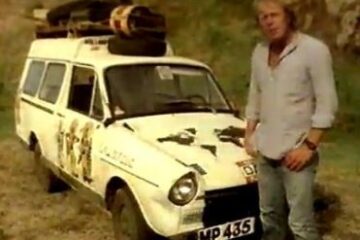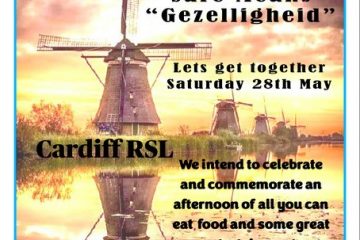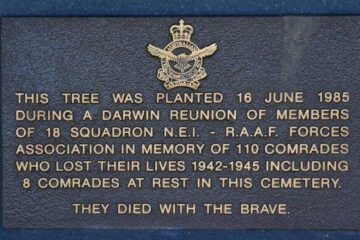Captain von Bosch and Consul General of Netherlands Mr. Bosschardt
The First Parliament of the Commonwealth of Australia was opened at the Melbourne Exhibition Building on 9 May 1901. The new King of England, Edward VII, sent his son and heir, the Duke of Cornwall and York, to Australia as his representative.
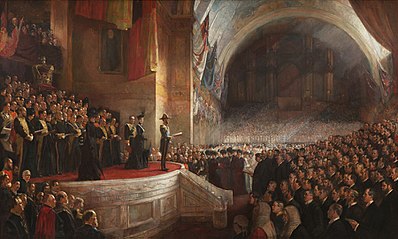
The painting is part of the Royal Collection but has been on permanent loan to the Parliament of Australia since 1957. The work, currently on display in Parliament House, Canberra.
At the opening there were two Dutch Representatives:
· Capt. von Bosch (Nordbrabant) # 235
· Mr M.W.I Bosschardt (Consul General for Netherlands). # 234
The ‘Big Picture’ includes 269 portraits of the people who attended the historic occasion. The numbers behind the names above refer this. The full list hangs next to the painting
Captain van den Bosch is mentioned on three occasions and the Dutch Consul-General in Australia, Willem Lodewyk Bosschart is also mentioned. http://nla.gov.au/nla.news-article10550379
There is a mention of van den Bosch nine years later in The Advertiser, published on the 1st of June 1910: http://nla.gov.au/nla.news-article5284710
This is an article that mentions Bosschart and his official visit to New Zealand in 1913 on (from the Embassy of the Kingdom of the Netherlands in Wellington website): http://www.dutch-heritage.co.nz/diplomatic-ties/
Dutch Naval Visit
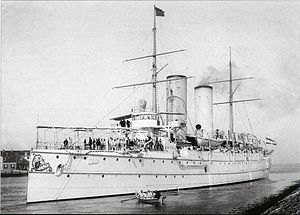
The Dutch Navy made its first visit to Australia in 1901 in relation to the opening of the first federal parliament.
The Dutch cruiser HNLMS Noordbrabant arrived in Australia via Albury and Melbourne arriving in Sydney in May 1901 to participate in a naval review and the celebrations surrounding the inauguration of the Commonwealth of Australia and the opening of the first federal parliament. The Gelderland was among several warships from different countries that visited Australia for the occasion.
There were political tensions at the time between the Netherlands and the British Empire as the Dutch supported the Boers in South Africa. While Australia did of course support the Brits the sentiment here was subdued, as many also thought that the Boers should get, in the words of Henry Lawson: ‘a fair go’.
The Dutch, ever pragmatic, didn’t let the political differences stand in the way of strengthening its ties with Australia.
According to to research from Edward Duyker, several Dutch-Australians did fight in the Boer War on the side of the Empire: Bert Fisher, being the son of James van de Veen, De Kuyper en Vanlowick.
